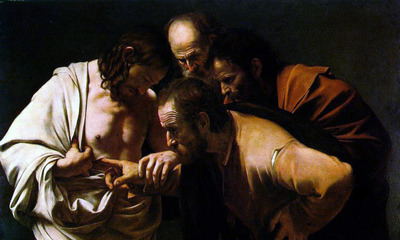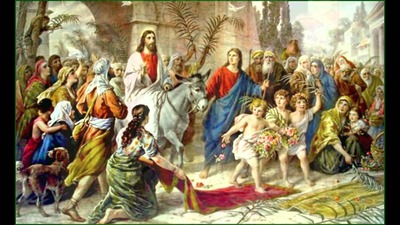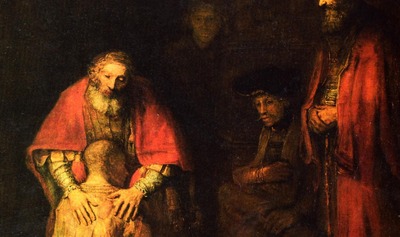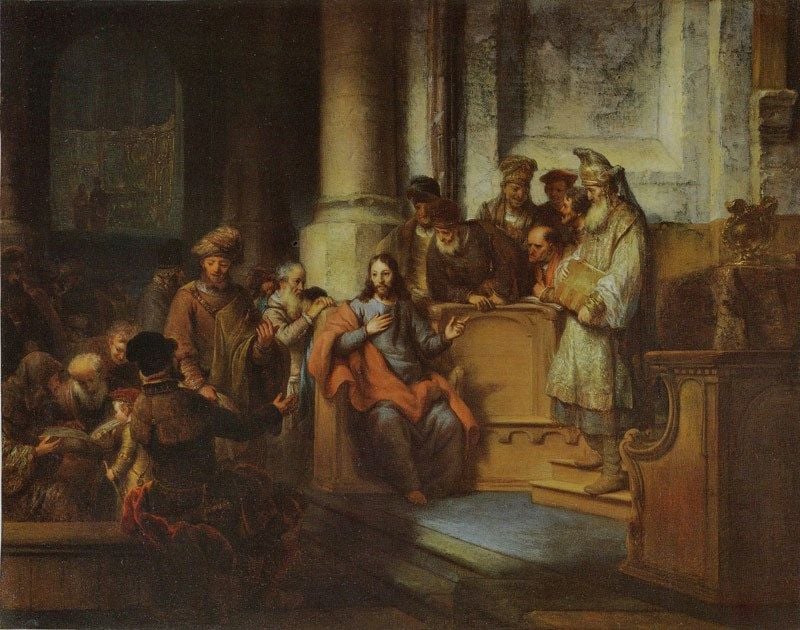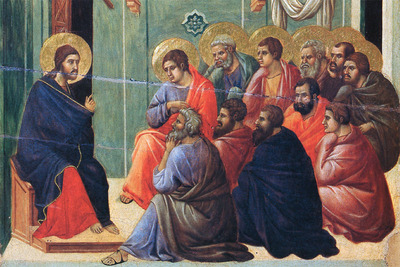September 24, 2023
|by N W
|
0 Comments
|
Blessings, Deacon Mark, Grace, Humility, Love, Mercy
Twenty-fifth Sunday in Ordinary Time
September 24, 2023 — Year A
Readings: Is 55:6-9 / Ps 145 / Phil 1:20c-24, 27a / Mt 20:1-16a
by Rev. Mr. Mark De La Hunt, Permanent Deacon
Today’s readings give us a message of hope in God’s love and mercy. No matter how badly or how often we choose sin, He is always, to quote King David (who wrote today’s Psalm 145), “gracious and merciful, slow to anger and of great kindness” (Ps 145:8-9). However, today’s scripture passages are also a challenge. I’m going to focus on Jesus’ challenge to accept God’s justice and to reject envy when it seems unfair to us.
In the first reading, the prophet Isaiah encourages the “scoundrel and the wicked” to turn to God, for He is “generous and forgiving” (Is 55:7). Isaiah lived at a time when Israel earned what it was getting, which was a collapse of its culture and exile under Babylonia. Nevertheless, he encouraged his people to repent and return to God. Why was he kind to them? For the same reason we all should be kind to the lost, because he had a similar experience to the one we can have at every Mass if we remain spiritually awake.
Around the year 740 BC, Isaiah “saw the Lord sitting on a throne.…Seraphs were in attendance above him…And they called [out], ‘Holy, holy, holy is the Lord’” (Is 6:1-3). Isaiah said, “Woe is me! I am lost, for I am a man of unclean lips, and I live among a people of unclean lips; yet my eyes have seen the King, the Lord of hosts! Then one of the seraphs flew to [him] holding a live coal [from the altar] …and touched his mouth with it, saying as he did so, ‘Now that this has touched your lips, your guilt has departed, and your sin is blotted out’” (Is 1:5-7).
Isaiah had experienced God’s unmerited grace from the heavenly altar while still a sinner. The hot coal that touched his mouth was a foreshadowing of Jesus in the Eucharist which we, too, receive from an altar that heaven touches. And like Isaiah, we know our uncleanness, but we trust that our sin is forgiven. Isaiah prayed, “Woe is me” in his conversion moment. We pray, “Lord I am not worthy…” Isaiah’s experience formed him in humility and in awe of God’s kindness and mercy; so too, should our Holy Communion. Isaiah’s conversion awakened compassion within him, helping him to accept God’s generosity and justice. Keep his experience in mind as well as your experience at Holy Communion, as we meditate on the gospel.
Recall St. Ignatius’s way of drawing near to God in scripture. You start by composing the place to center your mind, so it does not wander. Just prior to Jesus’ parable today, Matthew tells us that Jesus “left Galilee and went to the district of Judea across the Jordan” and that “great crowds followed Him, and he cured them there” (Mt 19: 1-2). To the twelve apostles and this crowd he tells today’s parable. Place yourself in this scene, caught up in the excitement of the crowd that hangs on this miracle worker’s every word.
Step two in this Ignatian exercise is to name the grace you want to receive from this encounter with God in the gospel. Maybe the grace we could ask for today is for Jesus to reveal where our heart and mind need further conversion.
Step three is to play out the scene. Jesus is telling a parable for the “kingdom of heaven,” saying it is like a landowner who went out to hire workers for his vineyard. Imagine you are a hard-working laborer and devout Jew listening to him.
We are intrigued by the story, wondering what Jesus is going to teach us by this parable. He says that the landowner went out about every three hours, from dawn until 5 PM, hiring laborers. As an ancient Jew, you know that a day’s wage is one denarius. So, when the landowner tells the laborers he hired at 9 o’clock, “I will give you a just wage” (Mt 20:4), you expected they would get less than those hired at earlier in the day.
However, the first paid were those hired at 5 o’clock, one hour before quitting time, and they received one denarius! Good for them, you think! You are excited to hear what the landowner is going to pay those who were hired at dawn. You are all for higher pay for laborers. But then you find yourself angry and aggravated that they also received one denarius. What the what?! You side with the laborer who complains how he worked all day and bore the heat, but still was paid the same as those hired late in the day. This is, in our eyes, an injustice. How quickly we forget Isaiah’s words that God’s ways are “so high” above ours.
Sitting there among the crowd, listening to Jesus, we recall the grace we prayed for when He began to preach, “Jesus, reveal where my heart and mind need further conversion.” Jesus continues his parable telling us how the landowner gently chastises the grumbling laborer. “My friend, I am not cheating you. Did you not agree with me for the usual daily wage? What if I wish to give this last one the same as you? Are you envious because I am generous” (Mt 20: 13-16)?
Ah, there it is. Jesus gives us the grace we asked for. He suggests we are envious. Envy is one of the seven deadly sins. Does it lurk anywhere in my heart and mind? What is envy? The catechism shares that St. Augustine called envy “the diabolical sin…from it are born hatred, detraction (gossiping about someone’s serious sin), calumny (making false statements about someone), joy caused by the misfortune of neighbor, and displeasure caused by their prosperity.” (CCC 2539)
Let’s do an examination of conscience around envy. When a recent convert or revert surpasses us in his pursuit of Jesus or seems to gain a higher position in the parish to which we have belonged much longer, are we envious? If so, confess it. When a political figure or celebrity, co-worker, or classmate that we cannot stand falls from grace, do we enjoy that and share their misfortune or sin in gossip with others? If so, confess it.
Now, with social media there are many opportunities to fall into the sin of envy. Sin harms us and envy is no exception. It robs us of happiness and can cause us to become depressed or anxious. A youth counselor said when parents request she treat their child for anxiety or depression, before she will treat them, she has them put down the cell phone for six months. She says the majority of their anxiety is healed simply from doing that. So, with social media in mind, are we envious of someone else’s home or popularity or beauty or talent or career or spouse/boyfriend/girlfriend? If so, confess it.
The catechism reminds us that “the 10th commandment requires that envy be banished from the human heart.” (CCC 2538) So how can we combat it or “banish it from our heart?” We strive for humility. St John Chrysostom gave us one description of this, preaching, “Would you like to see God glorified by you? Then rejoice in your brother’s progress and you will immediately give glory to God.” (CCC 2540)
Whether we are average in every way and daydream about being amazing, or we are brilliant and talented and think we must do remarkable things to earn love and respect, we are in the same trap. This trap tempts us to the sin of envy, which at its root, is a desire to be great in the eyes of others, or as Deacon Barry said, “To be somebody.”
So, how do we think of ourselves as little, yet do so in a way in which, while we are smaller, we are stronger? In which we do not need the love and adulation of others, yet feel more loved and affirmed? Spoiler alert on the answer. There is no Harry Potter magic spell that makes this happen instantly. Healing our ego by shrinking it is a paradox that takes time living in faith, hope, and charity to achieve. But the peace and joy and freedom we gain are worth the effort!
Here are some ways to banish envy. Build up others every chance you get, especially in those ways a person does well, but probably has not thought about: “Good job getting your family to Mass every Sunday.” “I appreciate the questions you ask in class.” “You are so good with the elderly, or you are so generous with your smile.” “Thank you for working for our family today, even though you were exhausted.” “Dad, thank you for taking care of Mom even though she can no longer return your love.” “I love how even though you just came into the church this past Easter, you are finding ways to participate in our parish!”
Spiritually, we combat envy with regular prayer, all the better if coupled with meditation on scripture. Here are a couple of verses that remind you that you are somebody. From Isaiah 43, “I have called you by name…you are precious in my eyes,” and from Psalm 139, “I praise you because I am wonderfully made.”
If those are too sugary for you, enter into the scene of Jesus on the cross and ponder and talk to Him about one of his last seven utterances. In your browser type, “Last Seven Words on Hallow” and you get a wonderful meditation on them. Here are a couple of His last seven. To all us sinners, “Father, forgive them, for they know not what they do,” and to the good thief who comes to “work in the vineyard” at the very end of his life, “Amen, I say to you, today you will be with me in paradise.”
From the cross, Jesus, who is paradox incarnate, makes the small feel big and the big feel small. In doing so, he banishes envy from our heart. Do beggars envy other beggars? If not, can fellow beggars of God’s love and grace envy one another? When our hearts are full of gratitude and our spiritual fuel tank is filled, there is no room for envy or any other sin.
Our Lady was free from envy because she was full of grace, so let’s seek her intercession:
Mary, you were a poor teenager in a small town, a humble handmaid, friend of the elderly neighbor, a wife and then a widow, a mother who lost her son, and our mother. By your Son’s gift, you were “full of grace,” leaving no room for envy. Pray for us lowly ones here that we may see our greatness through your Son’s eyes so that we are free to rejoice in others’ blessings. Amen!
Citations
The Holy Bible, Revised Standard Version, Second Catholic Edition. Ascension Publishing 2018.
Curtis Mitch & Edward Sri. Catholic Commentary on Sacred Scripture, The Gospel of Matthew. Baker Academic 2010.
KEEP READING
 540-586-8988
540-586-8988 

